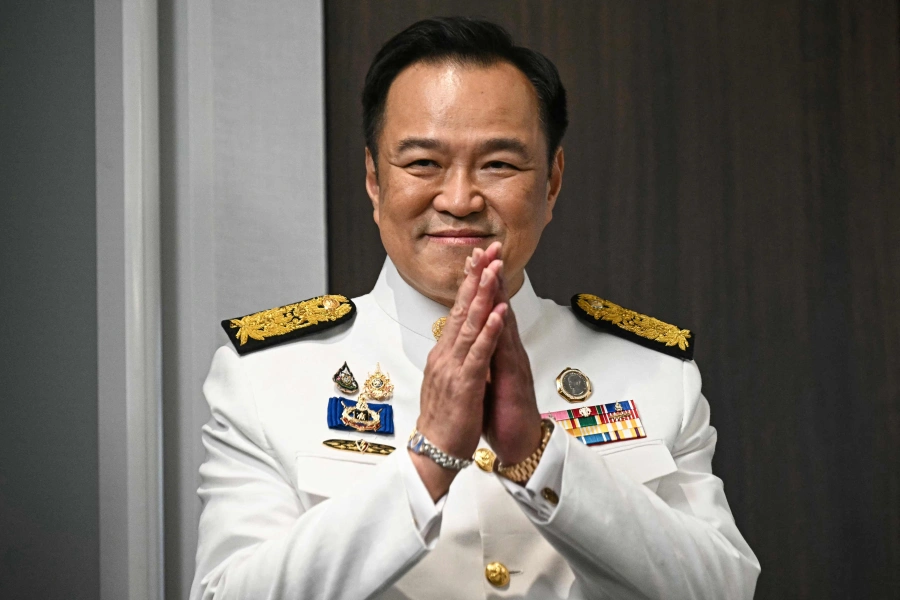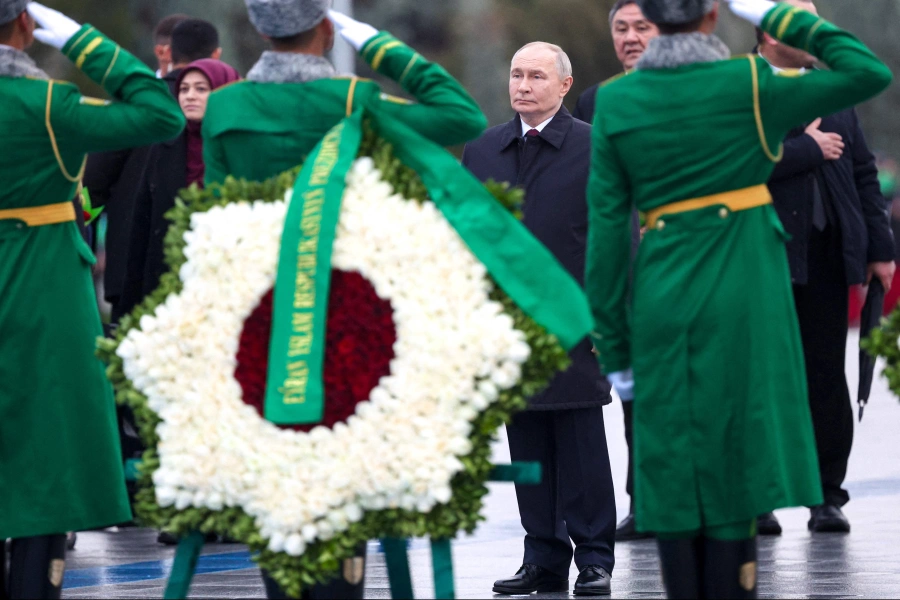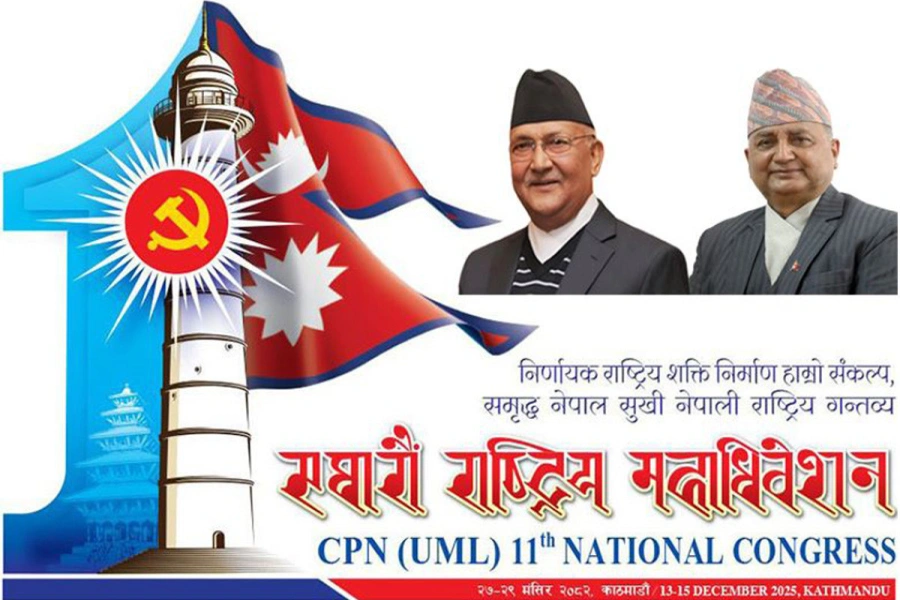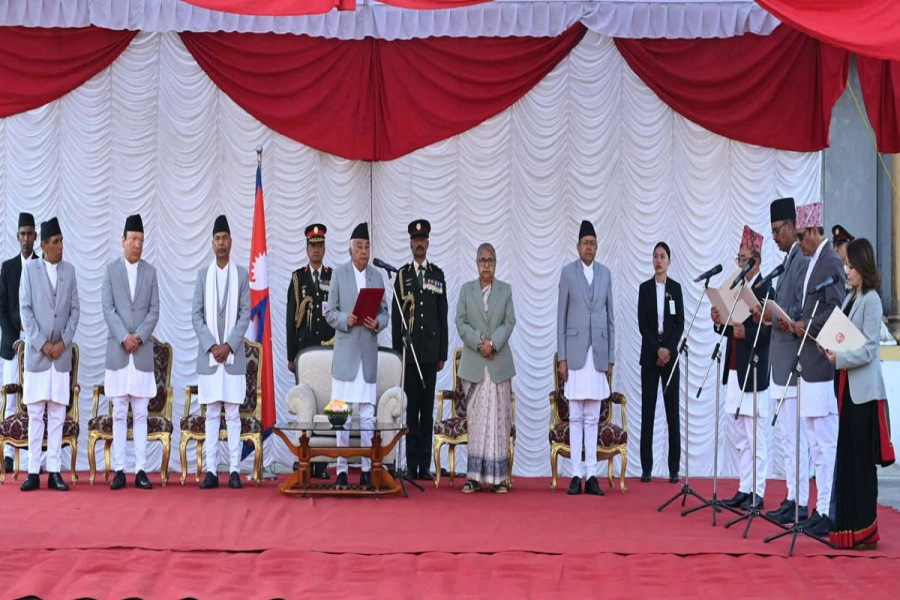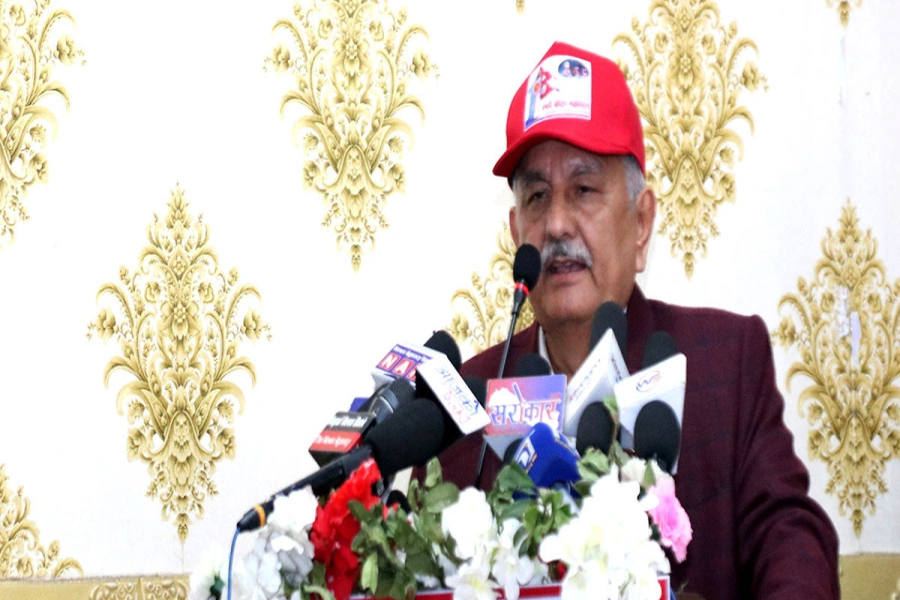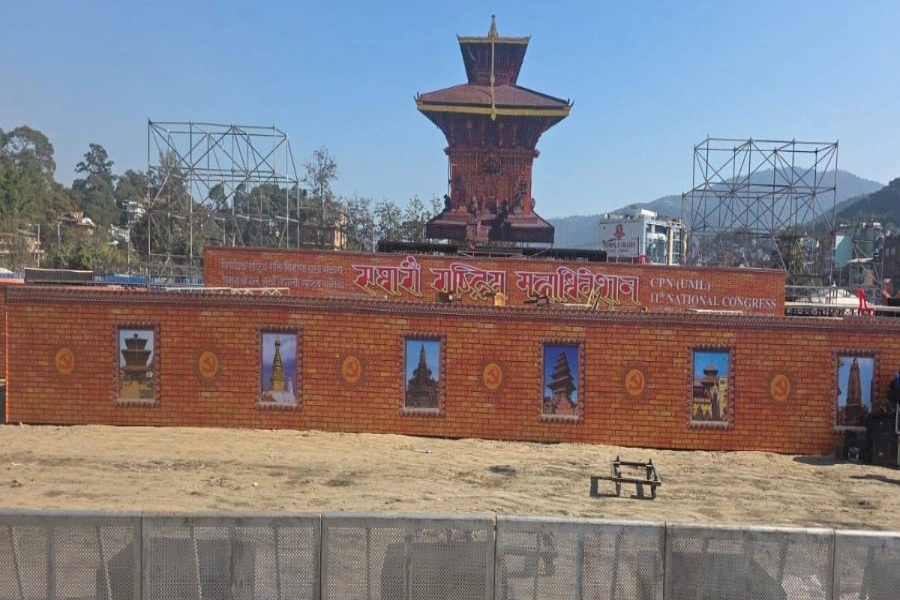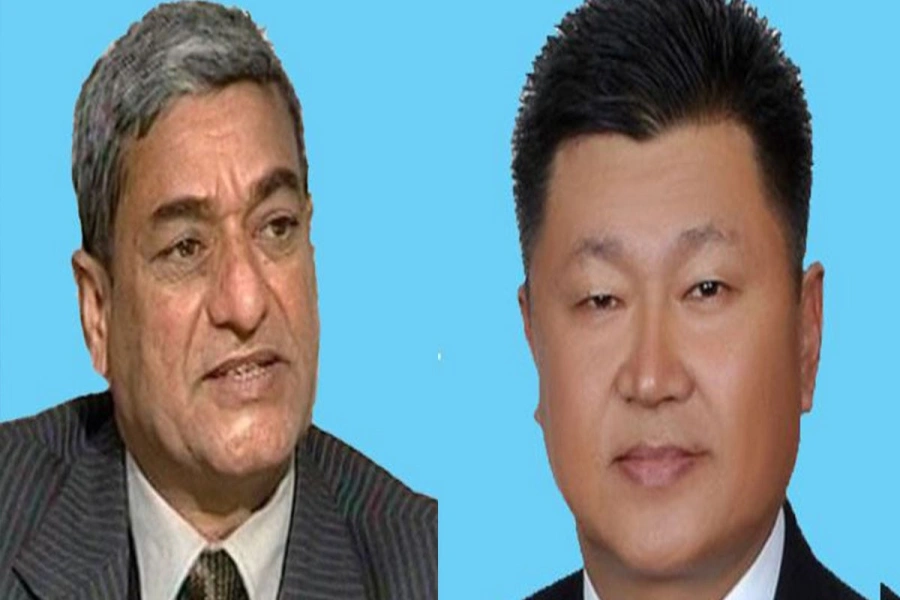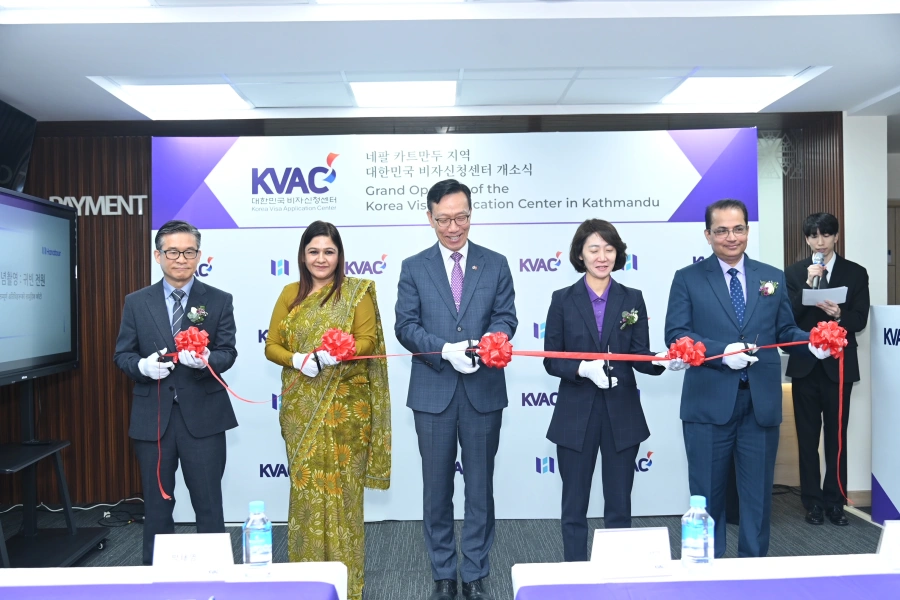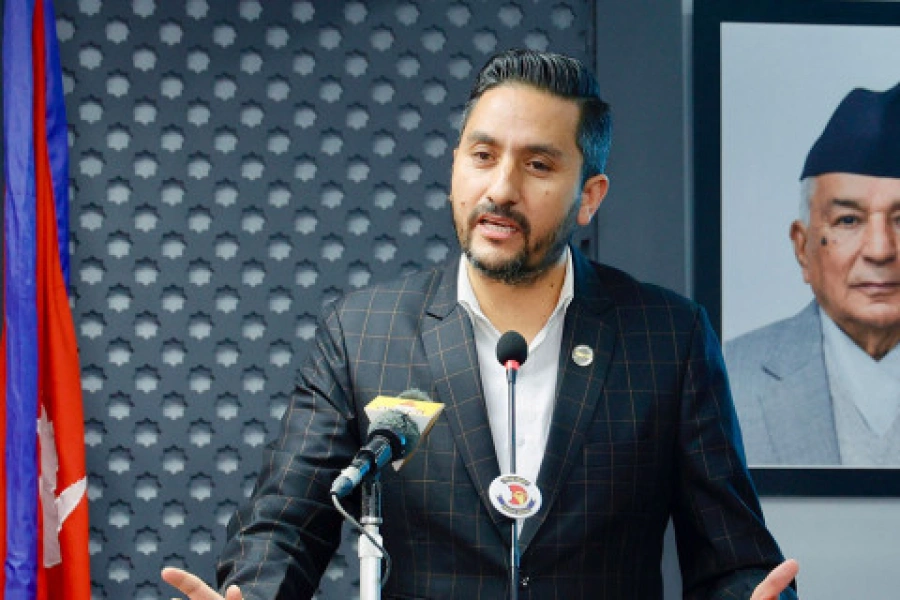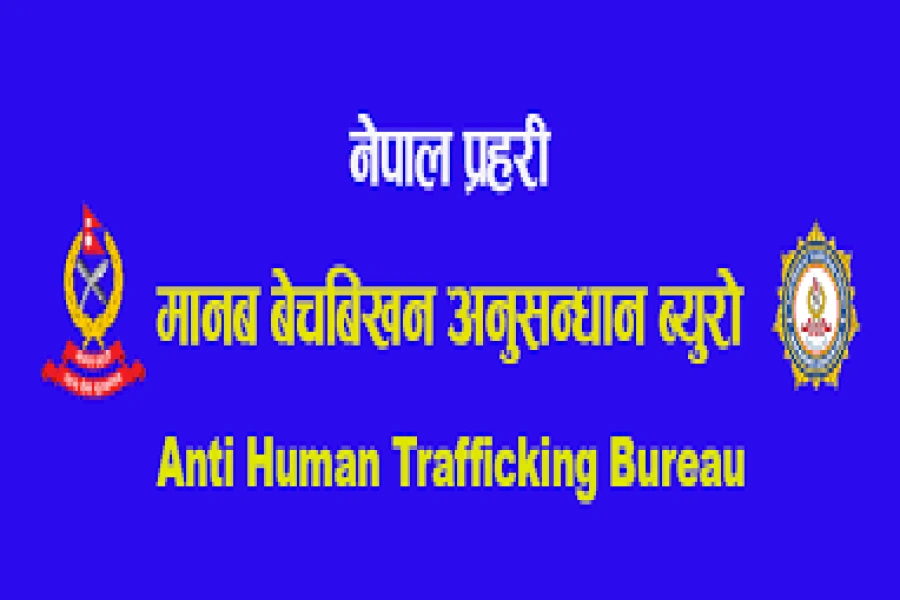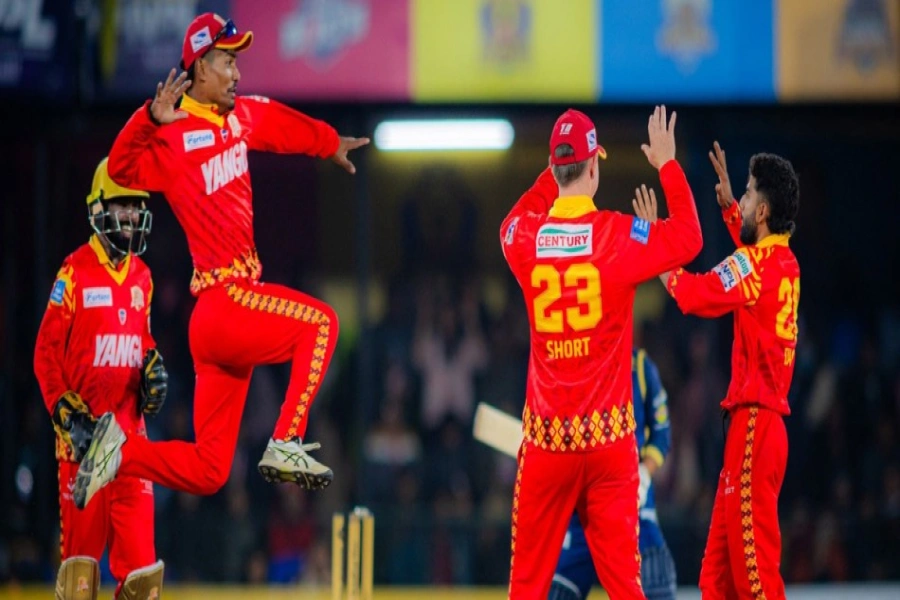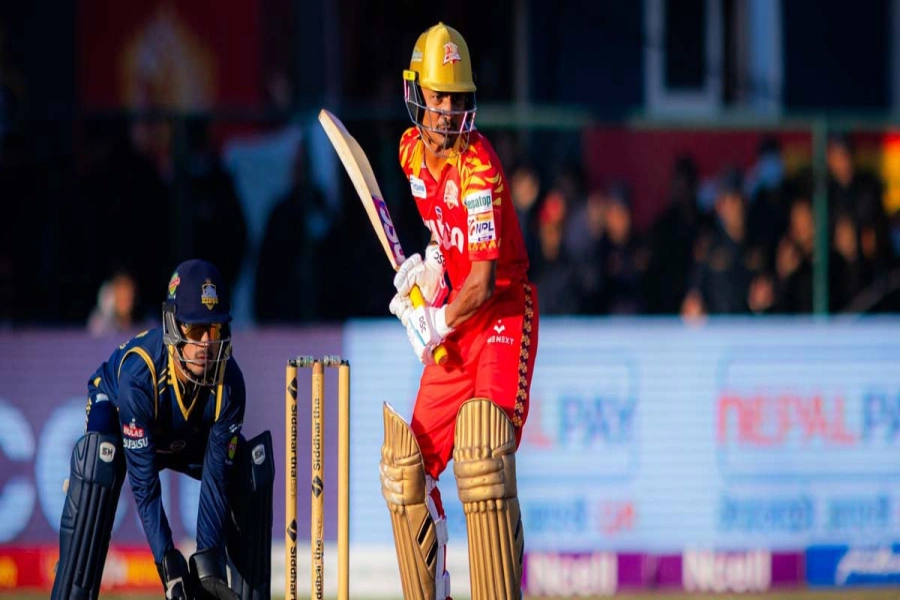KATHMANDU, Feb 11: As the deadline given by the US to take a final decision on whether to accept or reject the Millennium Challenge Corporation (MCC) grant is just two weeks away, major political parties in the country are busy weighing the prospect of their electoral success in the upcoming local level election.
The MCC grant agreement has become one of the most controversial topics in the country, largely due to the propaganda, misinformation and disinformation propelled by a section of political parties and 'leftist' intellectuals. YouTube channels and social media platforms are abuzz with false information that the MCC grant agreement, which Nepal government signed with the US government to develop cross-country power transmission line and road project, leading a section of people in the country, among other things, to naively believe that it is rather a strategic agreement and that it would pave the way for the US military to come to Nepal.
All major political parties have been ideologically divided over the MCC Compact Agreement since it was signed in 2017. However, the most important factor that has put the political parties in a difficult situation over the issue of endorsing the MCC grant agreement through parliament now is their consideration about the prospect of electoral success. While the local level poll has been scheduled for May 13, provincial assembly election and federal parliament elections are taking place early next year.
In fact, the debate and controversies surrounding the MCC grant agreement has already penetrated into the grassroots and the overwhelming majority of ordinary people, who are largely the consumers of information available in Youtube and other social media, believe that the MCC grant agreement is against the country's national interests. Second-rung leaders belonging to major political parties strongly believe that any decision of their party to vote in favor of the MCC grant agreement in parliament is likely to affect their electoral success in the upcoming elections.
Ruling NC stands firm to endorse MCC deal
Although the ruling Nepali Congress (NC) has unanimously decided to endorse the MCC agreement through parliament even if the party has to incur some loss in the poll, two other coalition partners –CPN (Maoist Center) and CPN (Unified Socialist) — are not in favor of endorsing the agreement at least before the election.
NC leaders admit that the propaganda and false information spread against the MCC agreement is likely to harm them in the upcoming election. "But we are clear that the agreement is in the best interest of the country and its people. Nepali Congress will make all possible efforts to endorse the agreement through parliament. We will then go to people to clear this misunderstanding about the MCC Compact Agreement," said NC Central Working Committee member Ram Hari Khatiwada.
Bungling on MCC

A meeting of the NC’s Central Work Performance Committee held on Thursday decided unanimously to endorse the MCC Compact Agreement through parliament, while concluding that it is in the best interest of Nepal. Sources said the party leaders have suggested soliciting support of the main opposition party, CPN-UML, to endorse the agreement even if this would mean breaking the current ruling alliance.
The NC has always remained positive about endorsing the MCC agreement through parliament since the agreement was negotiated and signed by an NC-led government in the past. The NC had constantly nudged the then Prime Minister KP Oli to take initiatives to endorse the MCC agreement through parliament even when the party was in the opposition in parliament. Then Prime Minister Oli, however, was unable to table it in parliament due to non-cooperation from the then Speaker Krishna Bahadur Mahara, who was alleged to have acted in tune with Maoist Center Chairman Dahal.
Double standard of Maoist Center, Dilemma of Unified Socialist
Although key leaders of the two ruling coalition partners — CPN (Maoist Center) and CPN (Unified Socialist) — have stood opposed to the MCC Compact Agreement, Maoist Center Chairman Dahal had once agreed to endorse the agreement through parliament. He even sent a joint letter to the MCC headquarters that his party is committed to endorsing the agreement through parliament anytime soon.
But as he now considers that the decision of his party to endorse the MCC agreement despite stiff opposition within his party would mean losing the election, Chairman Dahal has backtracked on his own promise. Party insiders say Dahal now believes that the UML, which has not made its official position public on the MCC grant agreement, plans to stay neutral in parliament and capitalize the anti-MCC sentiment that people in the grassroots have in the upcoming election in case the ruling parties decide to endorse it through parliament.
The Unified Socialist party also has the same considerations on the endorsement of the MCC Compact Agreement through parliament. All key leaders including Jhala Nath Khanal in the party are against endorsing the MCC agreement without bringing some amendments– something the US has already rejected.
As such, Maoist Center Chairman Dahal, who was not even in talking terms with him for months, called UML Chairman Oli on Thursday evening to propose unanimously endorsing the agreement through parliament. However, Oli did not give him a positive response, suggesting that the ruling parties had the requisite majority to endorse the agreement through parliament. The telephone conversation between Dahal and Oli took place barely an hour after NC's Central Work Performance Committee unanimously decided to endorse the MCC agreement through parliament.
UML eyeing to break ruling alliance
Political observers say the conspicuous silence of the UML on the current MCC debate is guided by its careful strategy to break the current ruling alliance. As Washington is mounting pressure to take a final decision on the MCC grant agreement, Prime Minister Sher Bahadur Deuba is determined to endorse the agreement through parliament even if this means breaking the current ruling alliance.
The US officials have already communicated to top leaders of major political parties in Nepal that the failure to endorse the MCC Compact Agreement will have huge ramifications in the development partnership between Nepal and the US. The US Assistant Secretary of State for South and Central Asian Affairs Donal Lu had personally called Prime Minister Deuba, UML Chairman Oli and Maoist Chairman Dahal over telephone to apprise them of the US position on the MCC.
The UML understands very well that their electoral success in the upcoming election is likely to be limited if they go to the election against the five-party alliance led by NC. In fact, UML continues to remain the largest party in parliament even after Madhav Kumar Nepal split the party due to its alliance with the Maoist Center. The UML and the Maoist Center had formed Nepal Communist Party (NCP) just before the provincial and parliamentary elections in 2017.
Party insiders say UML Chairman KP Oli, who even tried to push forward the agreement through parliament during his stint as the prime minister, is ready to lend his support to endorse the MCC Compact Agreement if the NC is ready to break the alliance with the Maoist Center and Unified Socialist. "The UML looks to have two strategies: break the current ruling alliance (and even be a part of the government) or cash in on the strong anti-MCC sentiment in Nepal during the upcoming election. Either way, the UML looks to score in the upcoming elections with the help of MCC," said a leader belonging to the Maoist Center.
‘Critical’ next two weeks
Leaders belonging to major political parties say the next two weeks are going to be critical as Prime Minister Deuba is determined to push ahead with the MCC agreement through parliament. Since his party has already given consent even to look for an alternative should the coalition partners stand against the MCC Compact Agreement, Deuba has intensified negotiations with the coalition partners. He has also quietly mobilized his close confidantes to forge an understanding with the UML, whose support will not be enough to endorse the agreement through parliament but more than enough to keep him in power in case the current ruling alliance breaks, according to sources.
In fact, Deuba has already taken initiatives to improve relations with Oli. On January 8, Prime Minister Deuba reached Oli's residence in Balkot. Since then, the two leaders are in constant communications as the US has mounted diplomatic pressure to take a final call on the MCC, according to party insiders. Chairman Oli also visited Baluwatar to hold a meeting with Deuba, who was accompanied by Dahal, on February 6.
The Oli-led government was then unable to table the MCC Compact Agreement in parliament due to non-cooperation of the then Speaker Krishna Bahadur Mahara, a leader close to Chairman Dahal. The public statements of Chairman Oli that Speaker Agni Sapkota, a close confidante of Dahal, cannot obstruct the government's preparation to table the MCC Compact Agreement in parliament, shows that Deuba has already forged an understanding with the UML, according to party insiders.
The next meeting of the House of Representatives (HoR) is scheduled for February 14. The meeting is likely to be deferred for a day as the UML has already made a request to Speaker Sapkota for the same as a number of UML lawmakers are scheduled to be in Biratnagar to attend the party’s rally.
A senior NC leader claimed that the NC and the UML are even ready to file an impeachment motion against Speaker Sapkota in case he continues obstructing the government's plan to table the MCC Agreement in parliament for endorsement. "He [Speaker] will stay on leave. The house will then be chaired by the senior-most member of parliament," the leader claimed, asking not to be named.
Any such move will break the current ruling alliance and the country may see street protests by the parties that are opposed to the MCC Agreement. This will again pave the way for the UML to be a decisive player in the country's politics. The 'decisive move' of Prime Minister Deuba to settle the MCC issue once and for all is set to make the next two weeks 'critical' not just for the country's political course but also for Nepal's decades-long partnership with the US.



